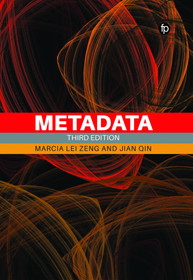
Metadata
-
20% KEDVEZMÉNY?
- A kedvezmény csak az 'Értesítés a kedvenc témákról' hírlevelünk címzettjeinek rendeléseire érvényes.
- Kiadói listaár GBP 69.95
-
33 418 Ft (31 827 Ft + 5% áfa)
Az ár azért becsült, mert a rendelés pillanatában nem lehet pontosan tudni, hogy a beérkezéskor milyen lesz a forint árfolyama az adott termék eredeti devizájához képest. Ha a forint romlana, kissé többet, ha javulna, kissé kevesebbet kell majd fizetnie.
- Kedvezmény(ek) 20% (cc. 6 684 Ft off)
- Kedvezményes ár 26 735 Ft (25 462 Ft + 5% áfa)
- A kedvezmény érvényes eddig: 2025. december 31.
Iratkozzon fel most és részesüljön kedvezőbb árainkból!
Feliratkozom
33 418 Ft

Beszerezhetőség
Becsült beszerzési idő: Várható beérkezés: 2026. január vége.
A Prosperónál jelenleg nincsen raktáron.
Why don't you give exact delivery time?
A beszerzés időigényét az eddigi tapasztalatokra alapozva adjuk meg. Azért becsült, mert a terméket külföldről hozzuk be, így a kiadó kiszolgálásának pillanatnyi gyorsaságától is függ. A megadottnál gyorsabb és lassabb szállítás is elképzelhető, de mindent megteszünk, hogy Ön a lehető leghamarabb jusson hozzá a termékhez.
A termék adatai:
- Kiadás sorszáma 3
- Kiadó Facet Publishing
- Megjelenés dátuma 2022. január 27.
- ISBN 9781783305889
- Kötéstípus Puhakötés
- Terjedelem592 oldal
- Méret 234x156 mm
- Nyelv angol 232
Kategóriák
Rövid leírás:
The third edition of this landmark textbook has been thoroughly updated to incorporate the many developments and changes in metadata and related domains.
TöbbHosszú leírás:
The third edition of this landmark textbook has been thoroughly updated to incorporate the many developments and changes in metadata and related domains. Authors Marcia Lei Zeng and Jian Qin provide a solid grounding in the variety and interrelationships among different metadata types, offering a comprehensive look at the metadata schemas that exist in the world of library and information science and beyond.
Readers will gain knowledge and an understanding of key topics such as: – metadata building blocks, from modeling to defining properties, from designing application profiles to implementing value vocabularies, and from specification generating to schema encoding, illustrated with new examples – best practices for metadata as linked data, the new functionality brought by implementing the linked data principles, and the importance of knowledge organization systems – resource metadata services, quality measurement, and interoperability approaches – research data management concepts like the FAIR principles, metadata publishing on the web and the recommendations by the W3C in 2017, related Open Science metadata standards such as Data Catalog Vocabulary (DCAT) version 2, and metadata-enabled reproducibility and replicability of research data – standards used in libraries, archives, museums, and other information institutions, plus existing metadata standards’ new versions, such as the EAD 3, LIDO 1.1, MODS 3.7, DC Terms 2020 release coordinating its ISO 15396-2:2019, and Schema.org’s update in responding to the pandemic – newer, trending forces that are impacting the metadata domain, including entity management, semantic enrichment for the existing metadata, mashup culture such as enhanced Wikimedia contents, knowledge graphs and related processes, semantic annotations and analysis for unstructured data, and supporting digital humanities (DH) through smart data.
Featuring new developments driven by semantic technologies and digital data and information, with an accompanying website and supplementary learning materials, this remains the definitive primer on metadata for students, instructors, faculty, and professionals at all levels of experience.
Több












